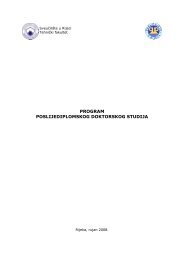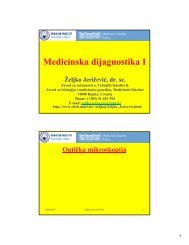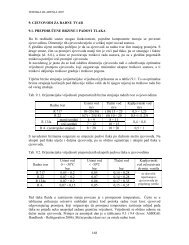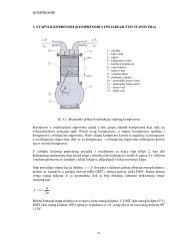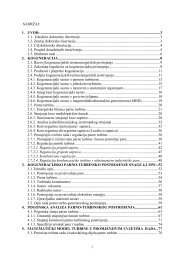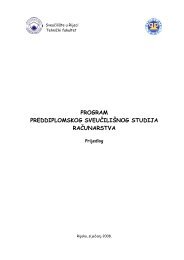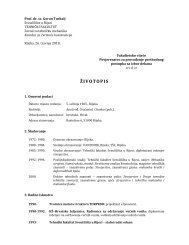universityâenterprise cooperation
universityâenterprise cooperation
universityâenterprise cooperation
Create successful ePaper yourself
Turn your PDF publications into a flip-book with our unique Google optimized e-Paper software.
1. Preface<br />
As pointed out by the European Commission and Member States (Bonn declaration,<br />
Lund declaration, Modernization Agenda…) universities as key players for the successful<br />
integration of the knowledge triangle, and transition of Europe into knowledge-based<br />
society, need to modernize, to be able to respond better to the market demands. They can do<br />
this by operating in close <strong>cooperation</strong> with enterprises, social partners, public and private<br />
organizations and supporting institutions, in a word almost the whole business world.<br />
Thanks to university triple role, as source of the highest level of education of students,<br />
providers of quality research and facilitators of innovation, their modernization and<br />
transition to enterprising university has been acknowledged as a core condition for the<br />
success of Lisbon strategy.<br />
The past years have been marked a period of intense activity and change in the Western<br />
Balkan Region in the areas of education and research, as a result of implementation of<br />
different EU instruments and programs, regional and national initiatives and incentives.<br />
As longest-standing EU programme, TEMPUS supports the modernization of higher education<br />
in the partner countries of the Western Balkans, Eastern Europe and Central Asia and the<br />
Mediterranean region, promotes institutional <strong>cooperation</strong> and focuses on the knowledge<br />
triangle of education, research and innovation at university level, within priority “Higher<br />
education and society”. Experience from previous TEMPUS initiatives and similar projects<br />
shows that there is a little awareness about necessity of university-enterprise <strong>cooperation</strong><br />
and its benefits, as well as lack of clear procedures for the establishment of effective and<br />
efficient model of <strong>cooperation</strong>.<br />
As a response, WBC-VMnet project is intended to promote knowledge triangle integration, to<br />
contribute to enhacement of capacity and modernization of universities in the WBC region,<br />
through establishing effective structures of <strong>cooperation</strong> among universities and regional<br />
enterprises. The most important result of the project is development and implementation<br />
of the new Western Balkans countries (WBC) model of university-enterprise <strong>cooperation</strong>,<br />
based on the best EU practice and specialities of the WBC region.<br />
This publication, as a product of joint activity of project partners, presents, first of all,<br />
EU legislative and recent incentives and initiatives, as well as collected good practices<br />
as case studies from EU universities. It also offers opportunity to readers to research<br />
and to find relevant additional information by using web site links of Knowledge Triangle<br />
(KT) structures established at EU universities. In addition, current state of WBC countries<br />
is presented, focusing in particular on existing support structures and mechanisms<br />
established at regional universities, provided with useful links, too. Proposed model,<br />
described in this publication, consists of a set of recommendations and measures. It also<br />
explains some important structures and their organization, needed for establishing a<br />
sustainable and fruitful university-enterprise <strong>cooperation</strong>.<br />
Public debate on draft version of publication, that is the new WBC model of universityenterprise<br />
<strong>cooperation</strong> will be undertaken in all WBC countries, in order to build consensus<br />
among stakeholders and key actors in the knowledge triangle, as well as to incorporate<br />
new ideas and changes in printed version of publication, as final. It is important step<br />
for successful implementation of regional model in the future. Evaluation of progress on<br />
implementing the WBC model will continue to be conducted throughout the project life<br />
span, in order to provide ongoing impetus for modernization of regional universities.<br />
9<br />
Preface 1



